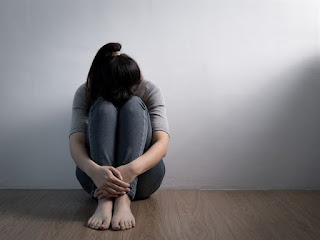Depression Symptoms and Warning Signs
What is depression?
Low moods are a normal part of life but usually they don't last long and they do not interfere with our full participation in life. Depression, by contrast, is not just a brief blue mood or a feeling of sadness that lifts in a few hours or days. Rather, depression is a mood disturbance marked by feelings of hopelessness, sadness and negative thoughts that are more severe or prolonged than the usual range of sadness that most people experience. Many people with untreated depression find facing life is very difficult. They can't "snap out of it" any more than a diabetic can regulate their blood sugar using willpower.
How common is depression?
Low-grade depression is a quite common emotional experience and most people feel "down in the dumps" from time to time. Moderate to severe depression affects 1 in 5 people some time in their lives. College students are at higher risk of developing depression because the college environment is often quite demanding and stressful. Some studies show that as many as 1 in 3 college students experience depression severe enough to impair their ability to function at some point during their undergraduate years. In fact, college students have a higher than average rate of suicide.
Symptoms:
Depression is not just one disorder. Clinicians classify depressive disorders differently depending on factors such as severity, duration, life stressors, and the presence of other medical problems. However, all depressive disorders are identified by the presence of some combination of the following symptoms that represent a change from a person's usual mood or behavior:
- Depressed or irritable mood most days for the majority of each day
- Total or very noticeable loss of pleasure or interests most of the time
- Significant change in appetite, weight or both
- Sleep problems (insomnia or excessive sleepiness) nearly every night
- Feelings of agitation or a sense of intense slowness
- Loss of energy and an overwhelming feeling of fatigue
- Sense of guilt and worthlessness nearly all the time
- Feelings of hopelessness and helplessness
- Inability to concentrate nearly every day
- Recurrent thoughts of death or suicide
Some people experience symptoms seasonally, which may indicate Seasonal Affective Disorder.
If you suffer from any of these symptoms—even for a week—please consider getting help. You don't have to "go it alone!" See Resources for Stress and Mental Health.
Treatment:
Fortunately, most depressive disorders are treatable using a variety of approaches, including medications, several well-tested forms of psychotherapy and light therapy (for seasonal affective disorder).
The psychotherapeutic and pharmaceutical treatments currently available are up to 80% effective at reducing or eliminating depressive symptoms. Consult with a clinician who can help you to decide on treatment options and screen for other relevant medical conditions. Depending on your preferences and the severity of your disorder, a clinician can prescribe medication and/or refer you to a psychotherapist or psychiatrist for further evaluation and treatment.
Depression Symptoms and Warning Signs
 Reviewed by Unknown
on
July 13, 2018
Rating:
Reviewed by Unknown
on
July 13, 2018
Rating:
 Reviewed by Unknown
on
July 13, 2018
Rating:
Reviewed by Unknown
on
July 13, 2018
Rating:



No comments